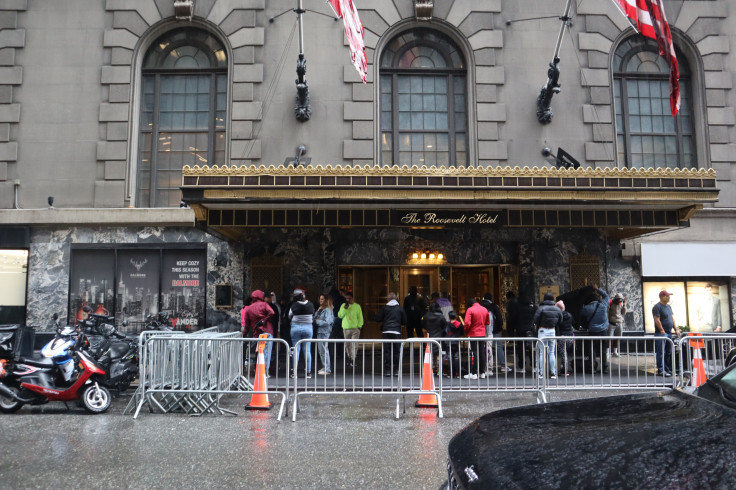
New York City Mayor Eric Adams has called the federal government to help dealing with the constant influx of asylum-seekers, as authorities struggle to meet their basic needs. Concretely, he proposed it implement a "decompression strategy" which would distribute migrants across the country rather than seeing most of them in certain cities.
"Cities should not be handling a national crisis of this magnitude," said Adams. "We're going to start seeing the visualization of this crisis. We've done a great job, but we can't continue to sustain this."
Overall, more than 180,000 asylum-seekers have reached the city's system since spring 2022. Many of them were taken from Texas as part of Governor Greg Abbott's "Lone Star" operation, which has taken migrants from the state's southern border to cities like New York City, Chicago and Denver.
According to ABC News, New York City officials say that they have opened more than 200 emergency sites to address the influx of migrants, including more than 90 shelters. As figures increased and continued over time, city authorities limited the services provided, with most adults now having to leave the shelters after 30 days and being prevented to reapply unless experiencing "extenuating circumstances." People under 23 years of age have a 60-day limit, while families don't face such restrictions. Families represented 78% of all asylum-seekers in New York City, according to the outlet, which cited data from the NYC Comptroller's office.
Chicago has taken a similar approach: it started evicting some migrants from its shelters this week, a measure that had been postponed three times because of extreme winter, staffing concern and backlash from advocates and elected officials.
City authorities said that nearly three dozen people were eligible for eviction on Sunday, but most of them ended up receiving extensions because of different extension possibilities, including enrollment in public benefits, pregnancy or infant care, medical care, medical isolation and quarantine, as well as having families with children under 18 years of age. Thousands of families in these conditions have already been given extensions.
Chicago authorities said on Friday that over 2,000 people would be evicted from current shelters by the end of April. There are currently more than 11,000 migrants staying in city and state-run shelters, down from almost 15,000 in late December, according to the Chicago Tribune.
Mayor Brandon Johnson's administration said the policy seeks to "decompress" some shelters, particularly those housing single migrants. Johnson said Friday that "by encouraging resettlement while also providing case-specific extensions with a focus on health and safety, we are advancing a pathway to stability and self-sufficiency."
© 2025 Latin Times. All rights reserved. Do not reproduce without permission.




